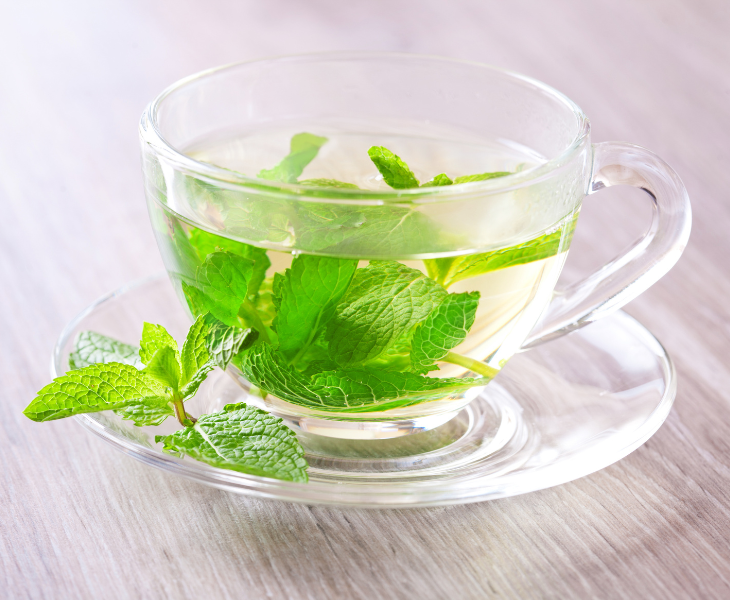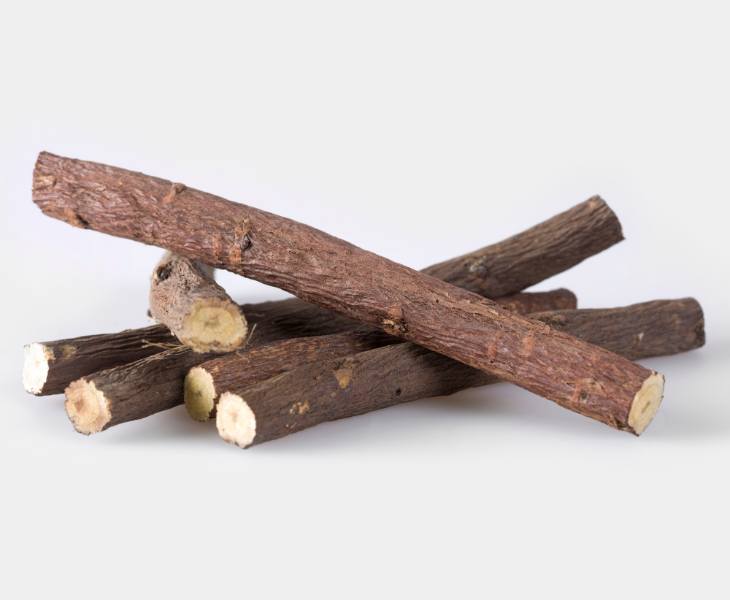Did you know that some of the best remedies for digestive issues come straight from nature? For centuries, medicinal herbs for digestive health have been used to soothe discomfort, promote better digestion, and restore gut balance. With more people seeking natural alternatives, these herbs are gaining popularity once again.
In this post, we’ll explore the top medicinal herbs for digestive health, how they work, and the best ways to incorporate them into your diet.
1. Peppermint: The Gut Soother

Peppermint is one of the most well-known herbs for digestive relief. Its cooling menthol content helps relax the muscles of the gastrointestinal tract, making it highly effective for treating symptoms like bloating, gas, and indigestion. In fact, peppermint oil is often recommended for people suffering from irritable bowel syndrome (IBS).
Peppermint tea is the easiest way to enjoy the herb’s benefits. You can also find peppermint in capsule form, often combined with other digestive aids.
How to Use: Drink peppermint tea after meals, or take a peppermint oil capsule before eating to prevent digestive discomfort.
2. Ginger: A Natural Digestive Aid
Ginger has long been praised for its ability to stimulate digestion and alleviate nausea. Rich in gingerol, it helps speed up the emptying of the stomach, making it a go-to remedy for people suffering from indigestion, gas, or bloating. Ginger is also known to reduce inflammation in the gut, which can further enhance digestive health.
A warm cup of ginger tea or adding fresh ginger to meals can make a big difference. It’s especially helpful for morning sickness and travel-related nausea.
How to Use: Sip ginger tea throughout the day or grate fresh ginger into soups, smoothies, or stir-fries for an added digestive boost.
3. Chamomile: Calming for the Stomach

Chamomile is widely known for its calming properties, but did you know it also works wonders for the digestive system? Chamomile tea has antispasmodic properties, making it great for reducing stomach cramps and inflammation. It also helps relieve symptoms of indigestion, bloating, and nausea, while promoting a calm, relaxed state that can benefit the gut.
For those who experience stress-induced digestive issues, chamomile may offer the perfect blend of relaxation and relief.
How to Use: Drink chamomile tea before bedtime to calm both your mind and digestive system.
4. Fennel: The Bloating Buster
Fennel seeds have long been used as a remedy for bloating, gas, and stomach discomfort. Fennel’s natural oils help to relax the muscles in the digestive tract, easing symptoms of bloating and indigestion. It is particularly useful after a heavy meal to help your body process food more efficiently.
You’ll often find fennel seeds served as a digestive aid in Indian cuisine. Fennel tea or simply chewing on fennel seeds after meals can provide quick relief from bloating.
How to Use: Chew on a teaspoon of fennel seeds after meals, or brew a cup of fennel tea to ease digestive discomfort.
5. Licorice Root: Soothing Gut Inflammation

Licorice root is another powerful herb known for its digestive benefits. It contains compounds that help soothe the lining of the stomach, making it effective for treating heartburn, acid reflux, and inflammation in the gut. The deglycyrrhizinated form (DGL) of licorice root is often recommended to prevent the side effects of glycyrrhizin, which can raise blood pressure in large amounts.
Licorice root is commonly used in teas, lozenges, or supplements for digestive health. It’s especially helpful for those dealing with gastritis or ulcers.
How to Use: Look for DGL licorice supplements, or drink licorice tea between meals to promote gut health.
6. Turmeric: Anti-inflammatory Powerhouse
Turmeric is more than just a spice; it’s a powerful anti-inflammatory herb that benefits digestion. Curcumin, the active compound in turmeric, helps reduce inflammation in the gut, which is often linked to digestive disorders like IBS and Crohn’s disease. Turmeric also stimulates bile production, aiding in the digestion of fats and supporting overall gut health.
Adding turmeric to your meals or taking it as a supplement can significantly improve digestion over time.
How to Use: Incorporate turmeric into your daily meals, or take a curcumin supplement for targeted digestive support.

7. Dandelion: A Gentle Liver Tonic
Dandelion root is a lesser-known digestive herb, but it’s incredibly effective. It works as a natural diuretic and liver tonic, helping to stimulate bile production, which aids digestion. Dandelion is also great for reducing water retention, which can cause bloating.
Dandelion tea or supplements are an easy way to reap the benefits of this powerful herb.
How to Use: Drink dandelion tea before meals to help with digestion and liver function.
8. Slippery Elm: Coating and Protecting the Gut

Slippery elm is an ancient remedy that works by forming a protective layer in the stomach and intestines. Its mucilage content helps soothe the lining of the gut, reducing irritation and promoting healing. This makes slippery elm a great choice for people suffering from heartburn, ulcers, or other digestive discomforts.
Slippery elm is often available as a powder or capsule, but it can also be made into a soothing tea.
How to Use: Take slippery elm supplements or drink slippery elm tea to coat and protect your digestive system.
Conclusion: Harness the Power of Medicinal Herbs for Better Digestive Health
Incorporating these medicinal herbs into your daily routine can provide natural and effective relief for a variety of digestive issues. From soothing nausea to reducing bloating, these herbs have stood the test of time as some of nature’s best remedies.
Ready to improve your digestive health naturally? Try adding some of these herbs to your diet today. Whether through teas, supplements, or meals, you can start experiencing the benefits almost immediately.
For more information on how to use medicinal herbs safely, always consult with a healthcare professional. For a deeper dive into herbal remedies, check out these authoritative resources.
Take control of your digestive health now—your gut will thank you!
Disclaimer: The following information is provided solely for informational purposes and should not be considered professional advice or a substitute for professional consultation. While every effort has been made to ensure the accuracy and reliability of the information presented, we make no representations or warranties of any kind, express or implied, regarding the completeness, accuracy, reliability, suitability, or availability of the information provided. Any reliance you place on such details is strictly at your own risk.








